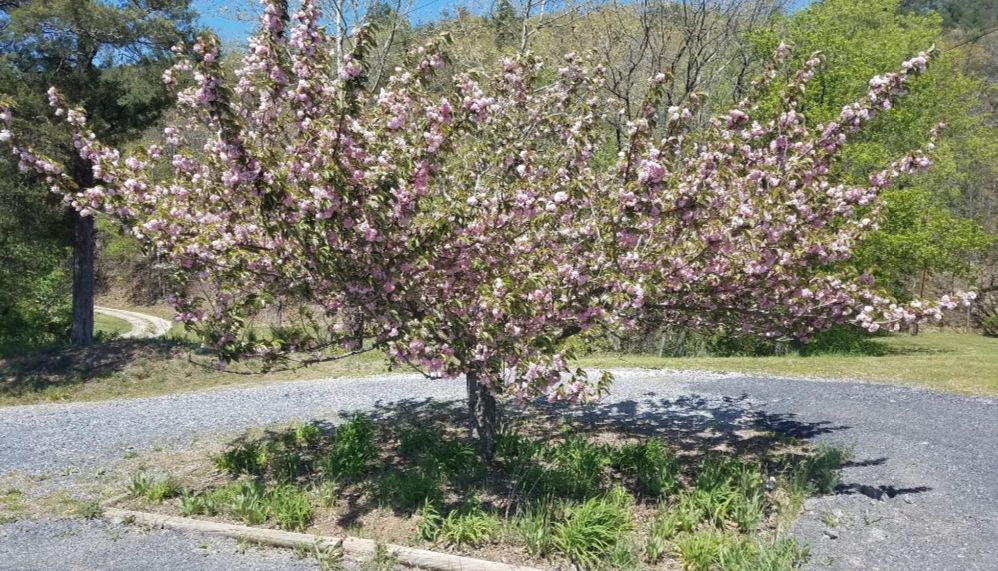Green Spaces And Mental Health: Lessons From A Seattle Woman's Pandemic Experience

Table of Contents
The Pandemic's Impact on Mental Well-being in Urban Environments
The COVID-19 pandemic significantly impacted mental health worldwide, particularly in densely populated urban areas like Seattle. The sudden shift to remote work, social distancing measures, and the constant barrage of unsettling news created a perfect storm of stress and anxiety. Many individuals found themselves grappling with unprecedented challenges to their mental well-being.
- Increased stress levels: Job insecurity, health concerns, and the profound loneliness of social isolation contributed to heightened stress levels. The constant uncertainty surrounding the pandemic exacerbated existing anxieties and fears.
- Difficulties accessing mental health services: Lockdowns and restrictions on movement made accessing mental health services challenging for many, further compounding the mental health crisis.
- Exacerbation of pre-existing conditions: The pandemic placed immense strain on individuals already battling mental health conditions like depression and anxiety, leading to relapses and worsening symptoms. The need for readily available and accessible mental health resources, often found integrated with access to nature, became critical.
The pandemic highlighted a critical need for accessible and effective strategies to support mental well-being within urban environments, underscoring the importance of readily available natural spaces.
Discovering the Therapeutic Power of Seattle's Green Spaces
Sarah, like many Seattleites, initially felt overwhelmed by the pandemic’s restrictions. The isolation and uncertainty took a toll on her mental health. However, a chance walk through a nearby park became a turning point. She began exploring Seattle's abundant green spaces, finding solace and peace amidst the chaos.
- Sanctuaries of serenity: Sarah frequently visited Discovery Park, with its stunning Puget Sound views, and Seward Park, known for its tranquil trails and diverse wildlife. These locations offered a much-needed escape from the confines of her apartment.
- Mindful movement and connection: Her activities included leisurely walks, mindful birdwatching sessions, and quiet moments of meditation amidst the towering trees. These activities fostered a sense of calm and centeredness.
- Emotional restoration: Sarah described feeling a noticeable shift in her mood and anxiety levels after spending time in these green spaces. The fresh air, the natural beauty, and the sounds of nature provided a powerful sense of restoration and healing. She reported feeling less stressed, more focused, and generally more optimistic after her visits.
The Science Behind Nature's Therapeutic Effects
Sarah's experience reflects a growing body of scientific evidence supporting the positive impact of nature on mental health. The concept of "biophilia," which describes the innate human connection to nature, and the creation of "restorative environments," are key elements in this understanding.
- Reduced stress hormones: Studies have shown a correlation between exposure to green spaces and reduced levels of cortisol, the primary stress hormone. Time spent in nature helps regulate the body's stress response.
- Improved mood and cognitive function: Research indicates that time spent in nature can improve mood, reduce symptoms of depression and anxiety, and enhance cognitive function, including attention and memory.
- Social interaction and community building: Green spaces often serve as venues for social interaction and community building, fostering a sense of belonging and connection, which is crucial for mental well-being. Shared experiences in nature can create strong bonds and reduce feelings of isolation.
Practical Applications: Incorporating Green Spaces into Daily Life for Improved Mental Well-being
Integrating green spaces into your daily routine is achievable for many, regardless of location or lifestyle. Even small amounts of time spent in nature can yield significant benefits.
- Finding your local oasis: Utilize online resources like Google Maps to locate parks, trails, and other green spaces near your home or workplace. Many cities provide detailed maps of their park systems.
- Mindful nature activities: Engage in activities that promote mindful engagement with nature, such as mindful walking, nature journaling, or simply observing the natural world around you.
- Overcoming barriers: Lack of transportation or time constraints shouldn't deter you. Even a short walk in a nearby park during your lunch break or a few minutes spent tending to plants on your balcony can make a difference.
Conclusion: Harnessing the Power of Green Spaces for Mental Health
Sarah's journey powerfully illustrates the significant role green spaces play in enhancing mental well-being, particularly during times of stress and uncertainty. Access to nature offers a readily available and effective tool for managing stress, improving mood, and promoting overall mental health. The scientific evidence overwhelmingly supports the therapeutic benefits of green spaces, emphasizing their importance in creating healthier, more resilient communities. Prioritize access to green spaces for your mental health and well-being. Search for "green spaces near me" or "parks for mental health" to discover the restorative power of nature in your own neighborhood. Integrate nature into your daily life to combat stress and cultivate positive mental health.

Featured Posts
-
 Amundi Msci World Ex Us Ucits Etf Acc Understanding Net Asset Value Nav
May 25, 2025
Amundi Msci World Ex Us Ucits Etf Acc Understanding Net Asset Value Nav
May 25, 2025 -
 Aktienmarkt Frankfurt Dax Faellt Analyse Zum 21 Maerz 2025
May 25, 2025
Aktienmarkt Frankfurt Dax Faellt Analyse Zum 21 Maerz 2025
May 25, 2025 -
 Amundi Msci World Ii Ucits Etf Usd Hedged Dist A Guide To Its Net Asset Value Nav
May 25, 2025
Amundi Msci World Ii Ucits Etf Usd Hedged Dist A Guide To Its Net Asset Value Nav
May 25, 2025 -
 Pts Riviera Blue Porsche 911 S T For Sale A Collectors Dream
May 25, 2025
Pts Riviera Blue Porsche 911 S T For Sale A Collectors Dream
May 25, 2025 -
 Bbc Radio 1 Big Weekend 2025 Tickets Everything You Need To Know
May 25, 2025
Bbc Radio 1 Big Weekend 2025 Tickets Everything You Need To Know
May 25, 2025
Latest Posts
-
 Bardellas Path To The French Presidency A Contender Emerges
May 25, 2025
Bardellas Path To The French Presidency A Contender Emerges
May 25, 2025 -
 French Pms Dissenting Voice On Macrons Leadership
May 25, 2025
French Pms Dissenting Voice On Macrons Leadership
May 25, 2025 -
 Ex French Prime Minister Disagrees With Macrons Policies
May 25, 2025
Ex French Prime Minister Disagrees With Macrons Policies
May 25, 2025 -
 Former French Pm Critiques Macrons Decisions
May 25, 2025
Former French Pm Critiques Macrons Decisions
May 25, 2025 -
 Amira Al Zuhair A Paris Fashion Week Highlight For Zimmermann
May 25, 2025
Amira Al Zuhair A Paris Fashion Week Highlight For Zimmermann
May 25, 2025
